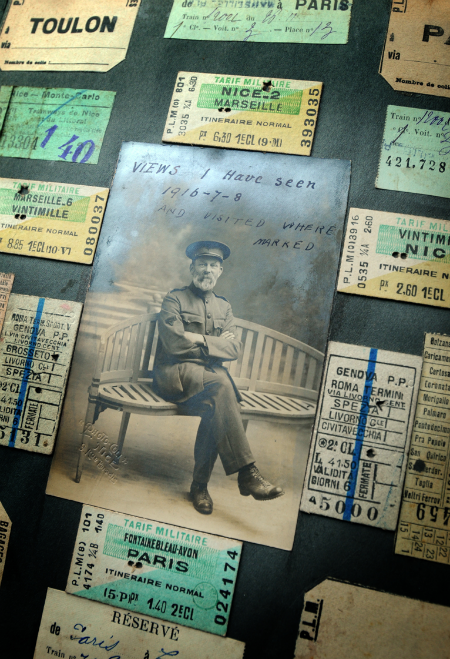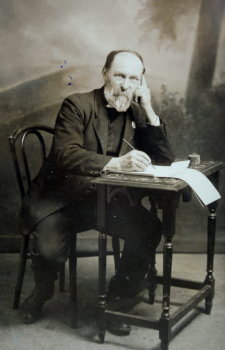In my mother’s house there’s a grainy black-and-white picture taken just before the First World War. In it, her grandfather Thomas Winter, his children and some family friends (and to my mind notably as an equine fan, a grey horse) stand outside their farmhouse.

The family had been gentleman farmers for four or five hundred years and attended the Baptist Church in the Buckinghamshire village of Holmer Green.
It’s a contented scene of ordinary people living daily life. But it was about to change forever, though perhaps not in the way that you’d think.
When World War 1 broke out, Thomas Winter knew he had to be there. The trouble was that at 59, he was too old for active service. Instead he joined the YMCA, to set up and run the social centres that soldiers away from the front line could use.
Perhaps not surprisingly all the soldiers called him ‘Daddy’. It was a remarkable action for a teacher-cum-farmer from a quiet village in the depths of Buckinghamshire’s countryside. But perhaps it was not so remarkable, according to my mother, Mary Southam, who remembers Thomas Winter well.
‘I was always brought up to think of him as a very fine old Christian man because he had spent his life doing what he thought he should for the kingdom of God,’ she says.
‘That was community service: lots of it. He was a man of the Baptist chapel in the village and spent a huge amount of time leading the Sunday School and helping to raise funds to expand the church.
‘He was a very sociable and likeable person and wanted to do his bit in whatever way he could.’
In 1914, that meant leaving the farm that he ran on the outskirts of the village and heading for France and then Italy, where he ran YMCA huts. His diaries provide an insight into his training for the work. He was told that ‘there is a chariot of fire about us’ and that he was to ‘be a witness for the truth’. As well as knowing that a 1lb jar of Bovril made 48 cups of drink, he was to ‘help someone know they are saved’.
His preparation for the YMCA took place in Winchester in Hampshire where I now live. Here he chose the same hymns that were being sung at his home church in Buckinghamshire. At first he found the work rather dull, until 7,000 men and 2,000 horses turned up and he was run off his feet.

His war involved building the so-called huts from scratch, and in Marseilles, also being asked by the officers to provide courts for tennis, baseball, badminton and vies as well as a cricket pitch with netting.
In Italy, he formed a choir of 40 men and led Sunday evening services and concerts on Friday nights.
‘I think his faith would have helped him when he was away at war,’ says my mother. ‘He was mature enough to be able to be a good friend and counsel to soldiers whom he met who were perhaps having a really rough time.
‘I should think he was in a good place to use his Christian faith to comfort and strengthen those soldiers.’
As we mark the centenary of the First World War, the family still remembers Thomas Winter with a mix of astonishment at his sense of adventure, fondness and respect.
We don’t live in the old farmhouse anymore. Though the last time I visited I saw a woman riding past it on her horse and the life in the picture at my mother’s house felt only touching distance away.